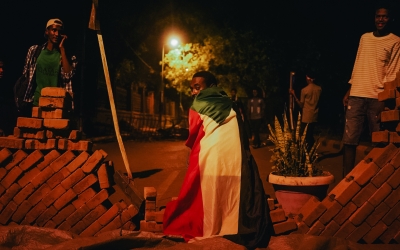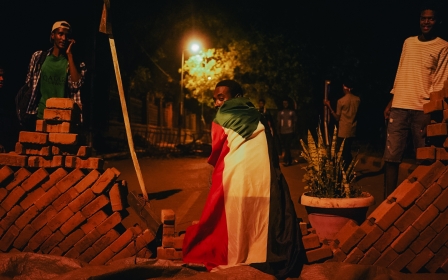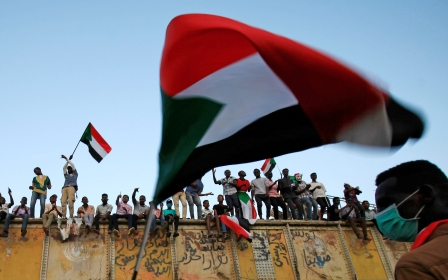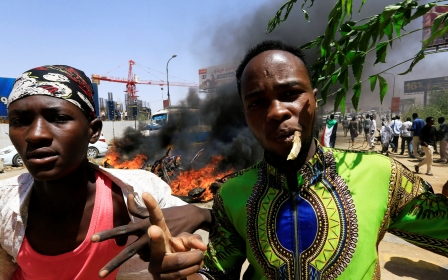Sudan army rulers say talks to resume as Islamists stage demonstration
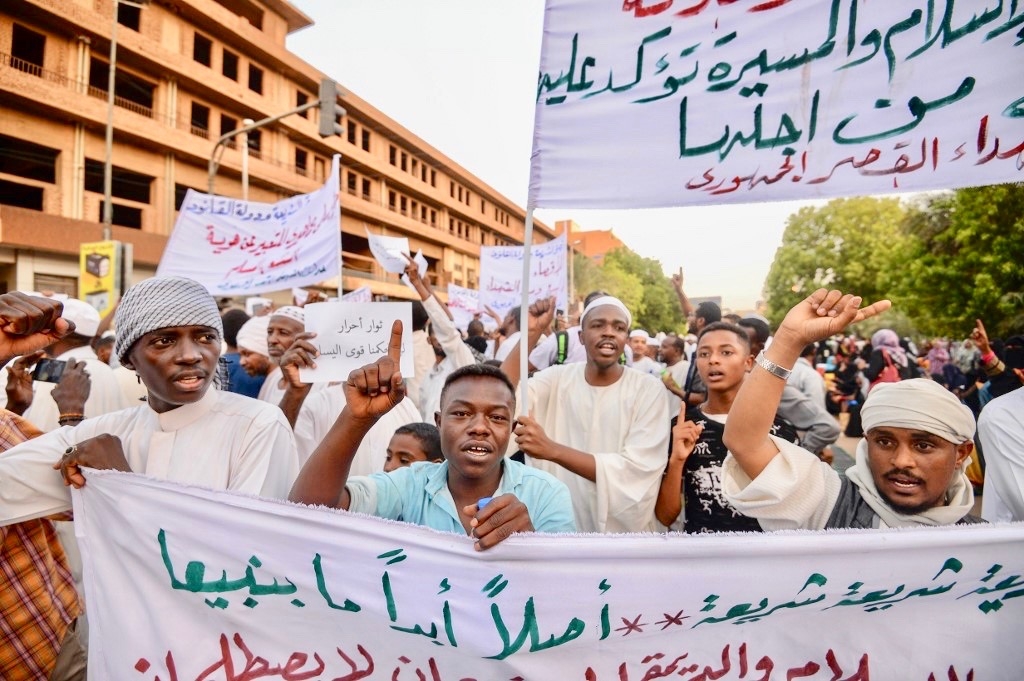
Talks between Sudan's ruling military council and protesters are set to resume, the army announced on Saturday, as Islamist movements rallied for the inclusion of sharia in the country's plans.
The military council said a new round of talks will begin on Sunday after a three-day pause, as the council called for the capital Khartoum's roads to be reopened, the Associated Press reported.
The military council said roadblocks are "totally unacceptable", but the generals will allow barricades set up by protesters outside army headquarters in Khartoum to remain and a sit-in there to continue, according to Standard Digital's website.
Talks were expected to focus on the make-up of the council that is to guide Sudan through the transition, and the role the military will have in that council.
New MEE newsletter: Jerusalem Dispatch
Sign up to get the latest insights and analysis on Israel-Palestine, alongside Turkey Unpacked and other MEE newsletters
The resumption of talks with the Alliance for Freedom and Change, the umbrella protest movement that brought down long-time leader Omar al-Bashir last month, comes following pressure from key world powers to get back to the table, AFP said.
The generals and protest leaders had been expected to come to an agreement on Wednesday on the thorniest issue - the make-up of the new council - but that meeting never took place, and on Thursday the head of the military council, General Abdel Fattah al-Burhan, confirmed that talks had been suspended for 72 hours.
Demonstrators subsequently spent hours meeting Burhan's demand to dismantle roadblocks that had paralysed parts of the capital.
Representatives from the United States, the United Nations, the African Union and European powers called on both sides to "reach an agreement ASAP on an interim government that is truly civilian-led and reflects the will of the Sudanese people", Tibor Nagy, the US assistant secretary of state for Africa, tweeted on Friday.
Before suspending talks, the two sides had agreed on several key issues, including a three-year transition period and the creation of a 300-member parliament, with two-thirds of the lawmakers from the Alliance of Freedom and Change.
Ahead of talks resuming, Sudanese Islamist movements held their own demonstration on Saturday outside the presidential palace in central Khartoum.
Hundreds of protesters took part in the demonstration, the first by Islamist groups since Bashir was removed from office in April.
"The main reason for the mobilisation is that the alliance is ignoring the application of sharia in its deal," Al-Tayieb Mustafa, who heads a coalition of about 20 Islamist groups, told AFP.
Bashir came to power in an Islamist-backed coup in 1989 and Sudanese legislation has since been underpinned by sharia law, but activists say it was applied inconsistently.
Over the years this led to thousands of women being flogged for "indecent behaviour", women's rights activists said.
The protest movement has so far remained silent on whether sharia has a place in Sudan's future, arguing that its main concern now is installing a civilian administration.
The protest movement brings together a wide range of political, social and also rebel groups from the country's conflict zones, which some say triggered perceptions that it is pushing for building a new secular Sudan.
"Islam is part and parcel of the identity of the majority of the people of Sudan," Sadeq al-Mahdi, Sudan's main opposition leader and an ex-premier told AFP in a recent interview.
Middle East Eye delivers independent and unrivalled coverage and analysis of the Middle East, North Africa and beyond. To learn more about republishing this content and the associated fees, please fill out this form. More about MEE can be found here.


